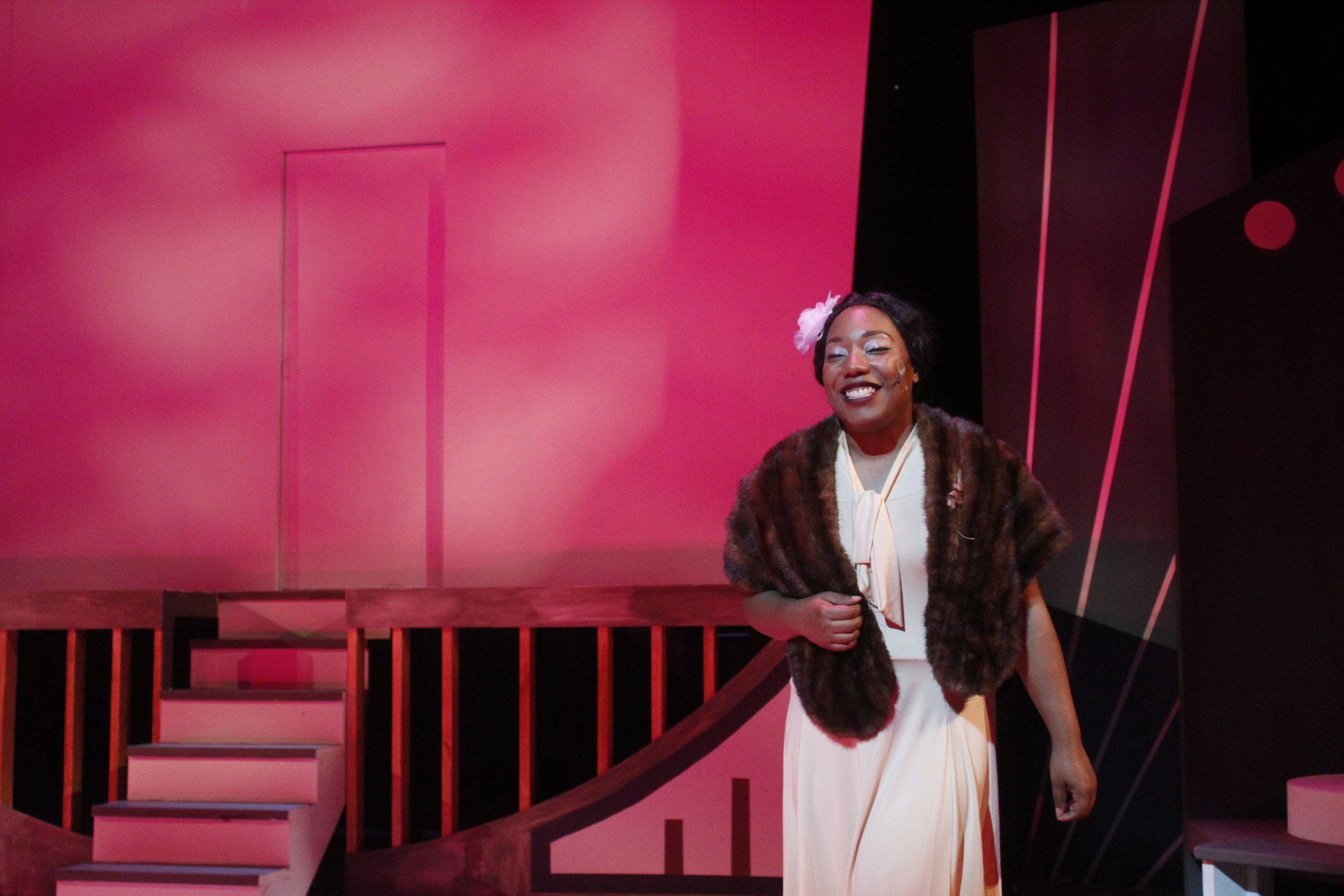My Brother Langston
Black Ensemble Theater continues its 2022 Four Play Season of Excellence, the season of healing and joy with My Brother Langston, directed by Rueben D. Echoles. Langston's work has been a part of Echole's life, and Langston's poetry has encouraged him throughout his childhood and acting career.
My Brother Langston begins in Hughes's apartment, where we see the beginning stages of his life that inspired his unforgettable poetry and how he became one of the greatest poets and civil rights leaders. First, we learn about Hughes's life as a teen, where his mother never provided him the motherly love as a child. Instead, Hughes lived with His "Nana," grandmother, who gave him the love and motivation he desperately needed. However, when she died, he was forced to live with his father, who was more of a militant dictator than a mentor.
Hughes wanted to become a professional poet after graduating from high school; however, he had to start his studies in engineering to get financial assistance from his father after he refused to support Hughes's writing aspirations. Hughes's grades as an engineering student were at the top of this class, and he received job offers; however, he couldn't contain his love for poetry and the glamorous and electrifying aura of Harlem, New York. And throughout his struggles and triumph, BET highlights Hughes's tapestry of life in a compelling play.
This production doesn't have the usual cast seen at Black Ensemble, bringing back senior member Andre Teamer, with Chris Taylor, De'Jah Jervai, Nolan Robinson, and Reneisha Jenkins making her BET debut. And although I would have liked to have seen additional performers on stage to accentuate certain scenes, the cast of five playing multiple parts didn't lessen my interest in their performance.
Chris Taylor was excellent as Langston. His delivery and passion playing the role lead the way to a delightful night. De'Jah Jervai, whose last performance here in Chicagoland was at Paramount Theater in Kinky Boots, was inspirational as Hughes's grandma. Reneisha Jenkins acting and singing songs like "In my Solitude and Travelin All Alone" was terrific. Finally, Nolan Robinson was a show-stealer as Hughes's younger brother Gwyn, who was thrilled to have a brother as famous as Langston. And Andre Teamer, who always provides excellent performances, is great as Countee Cullen and Hughes's father.
I have to say, I was initially disappointed with the appearance of the stage, which looked like something from a low-budget high school set; however, when you see the bland platform changed into an amazing big screen that compliments the storyline; I was pleased.
In addition, we witness the development of his friendship with an American poet, novelist, children's writer, and playwright, Countee Cullen, who mentored Hughes. Cullen and Hughes were two of the most influential poets of the Harlem Renaissance movement. They developed a bond through their poetry and social awareness of the struggles blacks received through racism, which can be seen in Countee Cullen's published work "From the Dark Tower" in 1927 and Hughes's, I, Too, and The Negro speaks of Rivers in 1921. BET casually hints about the two men being in a relationship as relationships of that kind were kept hidden but to fears of retribution.
James Mercer Langston Hughes was born in 1901, during the Harlem Renaissance, and is considered one of the earliest innovators of the literary art form jazz poetry. Hughes's poetry and writing circulated throughout many black newspapers, and he wrote a weekly column in a leading black newspaper, The Chicago Defender. Chicago also has a Countee Cullen Elementary school here in Chicago's southside. Its mission is to offer students a college preparatory educational program, fostering creativity, encouraging integrity, developing an appreciation for diversity, and cultivating a strong technological foundation.
Black Ensemble is known for its stage autobiography performances of tremendous and inspirational black actors, singers, and leaders. Accompanied by outstanding music from the Harlem Renaissance (Take the A-Train, The Joint is Jumping, and Tain't Nobody's Business If I Do), Hughes's celebrated poems, The Negro Speaks of Rivers, I Sing the Body Electric, I too, and My People, spoke to the soul of the negro.
Langston Hughes was a man before his time, but he lived in a time when the world needed to witness the brilliance people of color could achieve. It reminded the audience of his poetic brilliance and that Hughes was a prolific civil rights leader during the Harlem Renaissance.
My Brother Langston is exciting and engaging, making you want to learn more about the character.
Let's Play Theatrical Review Recommends My Brother Langston at The Black Ensemble Theater.
Black Ensemble Theater
My Brother Langston Hughes
Written and Directed by Rueben D. Echoles
Aug 13 – Sep 18, 2022




